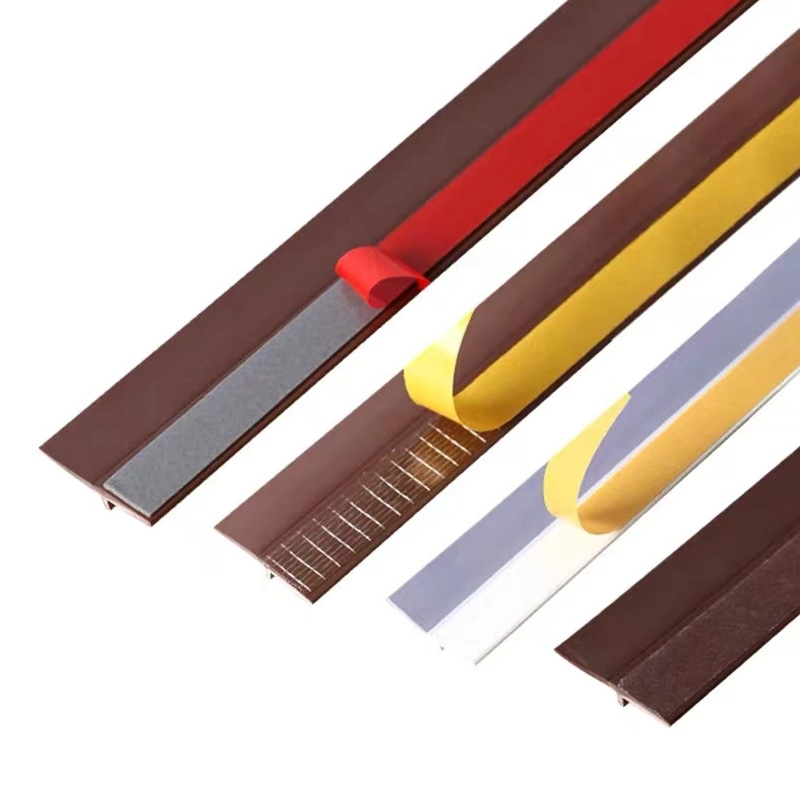- The Critical Role of Hydraulic Cylinder Tubes in Industrial Systems
- Material Advancements: Stainless Steel vs. Standard Hydraulic Tubes
- Manufacturer Comparison: Quality Metrics for Hydraulic Cylinder Tubes
- Custom Fabrication Capabilities for Specialized Applications
- Welded Hydraulic Cylinder Cross Tube Integration Techniques
- Performance Validation: Industrial Application Case Studies
- Selecting Optimal Hydraulic Cylinder Tubes for Long-Term Reliability

(hydraulic cylinder tube)
The Critical Role of Hydraulic Cylinder Tubes in Industrial Systems
Hydraulic cylinder tubes form the fundamental framework of fluid power transmission across multiple industries, from construction to manufacturing. These precision-engineered components directly determine system efficiency, with properly manufactured tubes reducing fluid leakage by up to 30% compared to substandard alternatives. The operational environment dictates specific requirements—agricultural equipment typically utilizes tubes with 2-3mm wall thicknesses while mining applications often require 5-7mm thick tubing to withstand extreme pressures exceeding 300 bar.
Material Advancements: Stainless Steel vs. Standard Hydraulic Tubes
Material selection creates significant performance differentiation, particularly regarding corrosion resistance and longevity. Stainless steel hydraulic cylinder tube
s outperform standard carbon steel variants in hostile environments, demonstrating 4-7 times longer service life when exposed to saltwater or chemical agents. The table below quantifies comparative advantages:
| Property |
Stainless Steel (316L) |
Cold Drawn Seamless (CDS) |
Welded Hydraulic Tube |
| Tensile Strength (MPa) |
515-690 |
510-670 |
480-620 |
| Surface Roughness (Ra μm) |
0.2-0.4 |
0.4-0.8 |
0.6-1.0 |
| Corrosion Resistance |
Excellent |
Moderate |
Moderate |
| Pressure Rating (bar) |
380+ |
320-350 |
250-300 |
| Cost Index |
1.8x |
1.0x |
0.7x |
Manufacturer Comparison: Quality Metrics for Hydraulic Cylinder Tubes
Leading hydraulic cylinder tube manufacturers differentiate themselves through precision manufacturing tolerances and material traceability protocols. Industry benchmarks require honed tubes to maintain ±0.025mm dimensional accuracy across 6-meter lengths, with premium manufacturers achieving ±0.015mm consistency through proprietary cold-working processes. Material certification compliance ranges significantly—ISO 10763 Level 1 suppliers provide full traceability with ultrasonic testing documentation on every tube section.
Custom Fabrication Capabilities for Specialized Applications
Customization capabilities distinguish hydraulic tube providers. Premium suppliers accommodate specifications ranging from unusual port configurations to specialized heat treatments. Recent projects include custom hydraulic cylinder tube solutions featuring internal diameters from 20mm to 500mm with custom porting patterns that reduced flow restriction by 22%. Protective treatments like black oxide coating extend service intervals 40% in high-abrasion applications.
Welded Hydraulic Cylinder Cross Tube Integration Techniques
Welded hydraulic cylinder cross tubes require specialized fabrication protocols to maintain structural integrity under dynamic loads. Optimized welding procedures utilizing submerged arc welding prevent heat-affected zone degradation. High-integrity assemblies undergo phased array ultrasonic testing after welding—defect detection rates improved by 85% after implementing this protocol. Proper cross tube design reduces cylinder binding during articulation by up to 50%.
Performance Validation: Industrial Application Case Studies
Offshore drilling equipment utilizing stainless steel hydraulic cylinder tubes demonstrated 18,000 operating hours without seal failure—triple the industry average. Mining hydraulic systems equipped with correctly specified tubes achieved 2.3 million operating cycles before required refurbishment. Agricultural machinery implementing welded hydraulic cylinder cross tubes reported 92% reduction in service interruptions due to fluid leakage during extended-season operations.
Selecting Optimal Hydraulic Cylinder Tubes for Long-Term Reliability
Hydraulic cylinder tube selection critically impacts operational efficiency throughout equipment lifecycles. Material compatibility, pressure dynamics, and environmental factors determine appropriate specifications. Properly specified hydraulic systems show demonstrable maintenance cost reductions of 25-40% over five-year operational windows. New surface treatments like diamond-like carbon coatings are extending service intervals beyond conventional expectations—these advances solidify hydraulic cylinder tubes as precision components rather than commodity items.

(hydraulic cylinder tube)
FAQS on hydraulic cylinder tube
Q: What materials are hydraulic cylinder tubes typically made from?
A: Hydraulic cylinder tubes are commonly manufactured from high-strength carbon steel or specialized alloys. For corrosive environments, stainless steel hydraulic cylinder tubes offer superior rust resistance. Material selection depends on pressure requirements, operating conditions, and budget constraints.
Q: Why choose stainless steel hydraulic cylinder tubes?
A: Stainless steel hydraulic cylinder tubes provide exceptional corrosion resistance in harsh environments like marine applications or chemical processing. They withstand moisture, acids, and salts without compromising structural integrity. This extends service life despite higher initial costs compared to carbon steel variants.
Q: How are welded hydraulic cylinder cross tubes manufactured?
A: Welded hydraulic cylinder cross tubes are constructed using precision welding techniques to join tubes perpendicularly to cylinder barrels. This process ensures leak-proof connections capable of withstanding extreme lateral forces. Post-weld heat treatment and machining guarantee dimensional accuracy and pressure containment.
Q: What surface treatments improve hydraulic cylinder tube performance?
A: Chroming and honing are standard surface treatments applied to hydraulic cylinder tubes. Hard chrome plating reduces friction and wear on piston seals, while honing creates optimized oil-retaining surface patterns. Together they enhance sealing efficiency and minimize abrasive damage during operation.
Q: What industries commonly use hydraulic cylinder tubes?
A: Hydraulic cylinder tubes are essential in construction machinery like excavators and bulldozers. They're also critical in agricultural equipment, manufacturing presses, and material handling systems. Stainless steel variants specifically serve food processing, offshore drilling, and waste management applications.
 Afrikaans
Afrikaans  Albanian
Albanian  Amharic
Amharic  Arabic
Arabic  Armenian
Armenian  Azerbaijani
Azerbaijani  Basque
Basque  Belarusian
Belarusian  Bengali
Bengali  Bosnian
Bosnian  Bulgarian
Bulgarian  Catalan
Catalan  Cebuano
Cebuano  Corsican
Corsican  Croatian
Croatian  Czech
Czech  Danish
Danish  Dutch
Dutch  English
English  Esperanto
Esperanto  Estonian
Estonian  Finnish
Finnish  French
French  Frisian
Frisian  Galician
Galician  Georgian
Georgian  German
German  Greek
Greek  Gujarati
Gujarati  Haitian Creole
Haitian Creole  hausa
hausa  hawaiian
hawaiian  Hebrew
Hebrew  Hindi
Hindi  Miao
Miao  Hungarian
Hungarian  Icelandic
Icelandic  igbo
igbo  Indonesian
Indonesian  irish
irish  Italian
Italian  Japanese
Japanese  Javanese
Javanese  Kannada
Kannada  kazakh
kazakh  Khmer
Khmer  Rwandese
Rwandese  Korean
Korean  Kurdish
Kurdish  Kyrgyz
Kyrgyz  Lao
Lao  Latin
Latin  Latvian
Latvian  Lithuanian
Lithuanian  Luxembourgish
Luxembourgish  Macedonian
Macedonian  Malgashi
Malgashi  Malay
Malay  Malayalam
Malayalam  Maltese
Maltese  Maori
Maori  Marathi
Marathi  Mongolian
Mongolian  Myanmar
Myanmar  Nepali
Nepali  Norwegian
Norwegian  Norwegian
Norwegian  Occitan
Occitan  Pashto
Pashto  Persian
Persian  Polish
Polish  Portuguese
Portuguese  Punjabi
Punjabi  Romanian
Romanian  Samoan
Samoan  Scottish Gaelic
Scottish Gaelic  Serbian
Serbian  Sesotho
Sesotho  Shona
Shona  Sindhi
Sindhi  Sinhala
Sinhala  Slovak
Slovak  Slovenian
Slovenian  Somali
Somali  Spanish
Spanish  Sundanese
Sundanese  Swahili
Swahili  Swedish
Swedish  Tagalog
Tagalog  Tajik
Tajik  Tamil
Tamil  Tatar
Tatar  Telugu
Telugu  Thai
Thai  Turkish
Turkish  Turkmen
Turkmen  Ukrainian
Ukrainian  Urdu
Urdu  Uighur
Uighur  Uzbek
Uzbek  Vietnamese
Vietnamese  Welsh
Welsh  Bantu
Bantu  Yiddish
Yiddish  Yoruba
Yoruba  Zulu
Zulu 













